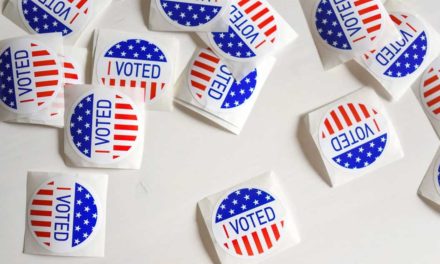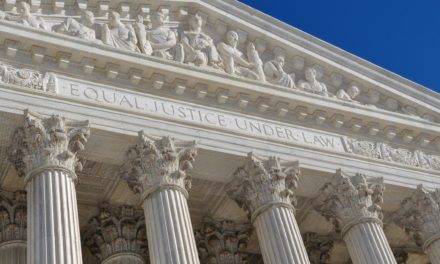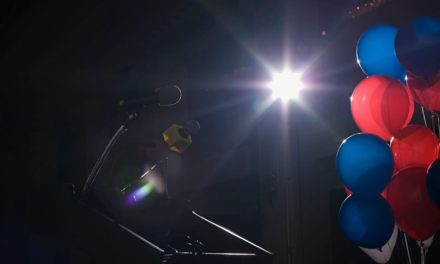Are there ethical norms in politics? Short answer—no.
Just asking the question spoils the answer. Talk about a ripe subject. Political writers are ripe by nature.
It is September 2020 and the political season has been on for a couple of months now, albeit hampered by COVID-19, a droopy economy, a volatile stock market, and the ugly head of racism in policing, politicking, and pot licking. 2020 is a presidential election year and likely to be coarser, meaner, and ranker than ever.
Every election season produces a new legion whose livelihood depends on winning the prize—political office. Ripe to the point of bursting. Ready to eat. Like a ripe Brie, an outhouse, or last week’s fish. Political writing since the summer of 2015 has advanced steadily down the path of strewn truth, bruised egos, battered facts, blunted insight, and most recently alt-news and alternative facts. Fact-checking is more geometry than algebra. It’s not so much a difference between facts and opinions as it is between my facts and yours. So, the historic ethical norm of truth is not expected in the political discourse this season.
Before 2016, the historical norm of accountability was an ethical premise in political writing. Not so much during the 2018 mid-term elections. And here we are in 2020, voters waiting to be plucked, mucked, or worse. Fake news is the new “trust me.” The convincing lie gets more votes than the doubtful truth. If your side doubts the truth of your opponent, you win without offering proof. Such a deal!
Somewhere along the syntax trail, a bad thing happened to grassroots and brass politics. They were conflated, debated, and dunged. Political, eh? Post-truth politics. That’s our ethical reality. What was once science is now a cult. The first liar never stands a chance. So far in 2020, we’re debating emotion and deflating policy. One side wants to hide from policy positions, as though you could take the apple out of an apple pie. What’s left are talking points and political mush.
While recently AWOL, there are ethical norms in politics. What was once quaintly called political morality was premised in moral judgments about political action. But political action rarely equates to the ethics of policy. Public policy concentrates on judgments, not mere words or even actions. Public policy draws on moral and political philosophy, democratic theory and political science.
The ethics of political writing are nuanced. In the 2020 presidential election, we will see candidates overstating chances of success, making unlikely promises, and engaging in rhetorical framing to fit any given situation. The 2020 ethical norms will forgive some candidates who have steadfastly ignored policy positions while trumpeting change. Much like stand-up comedy, one side will claim to be anti-regulatory as long as it serves the interests of big business. You can be against corruption while in office if you don’t raise taxes to fight corruption. You can be against dark money and accept some of it, unless it turns out to be politically incorrect, in which case you have to advocate, in writing, that you’ll give it back if the donor is caught. In the olden days, you could not appear to be ruthless. Today it’s par for the course if you’re ruthless about whatever your base wants. Reading books used to be a given for all political candidates, irrespective of ideological bent. Now known book-readers are suspect. Not of being ethical, but of being elite. Being elite is the new devil.
This election will see a return to the dirty tricks of the 1972 election. A generalized form of dirty political campaigns persists in politics despite the paradoxes. We will see individual leaders and democratic citizens as political agents, willing to act like newborn dragonflies, stuck in the muck. Often, the test will be whether the end justifies the means. What will likely be renewed, given the 2018 midterms, is a return to blatant rally calls for violence, locking people up, deception and secrecy. All of it will be morally questionable and politically justified. This will not be an election for the meek, the humble or the deserving.
The Ethics Sage labeled “political ethics as oxymoronic.”[1] “Ethics and oversight are what you eliminate when you want absolute power.”[2] “A man without ethics is a wild beast loosed upon this world.”[3] And, if there was any doubt, Trump gave us a quote about himself. “There’s an old German proverb to the effect that ‘fear makes the wolf bigger than he is,’ and that is true.”[4]
It will be a vicious 2020 campaign.

I am an author and a part-time lawyer with a focus on ethics and professional discipline. I teach creative writing and ethics to law students at Arizona State University. Read my bio.
If you have an important story you want told, you can commission me to write it for you. Learn how.
[1] https://www.ethicssage.com/2016/09/political-ethics-is-an-oxymoron.html
[2] https://www.goodreads.com/quotes/tag/ethics-in-politics
[3] Albert Camus. https://www.wiseoldsayings.com/ethics-quotes/
[4] Donald Trump, “Think Like a Champion: An Informal Education In Business and Life” https://www.goodreads.com/author/quotes/676.Donald_J_Trump






 I am an author and a part-time lawyer with a focus on ethics and professional discipline. I teach creative writing and ethics to law students at Arizona State University.
I am an author and a part-time lawyer with a focus on ethics and professional discipline. I teach creative writing and ethics to law students at Arizona State University.  My latest novel is Hide & Be.
My latest novel is Hide & Be.  If you have an important story you want told, you can commission me to write it for you.
If you have an important story you want told, you can commission me to write it for you.